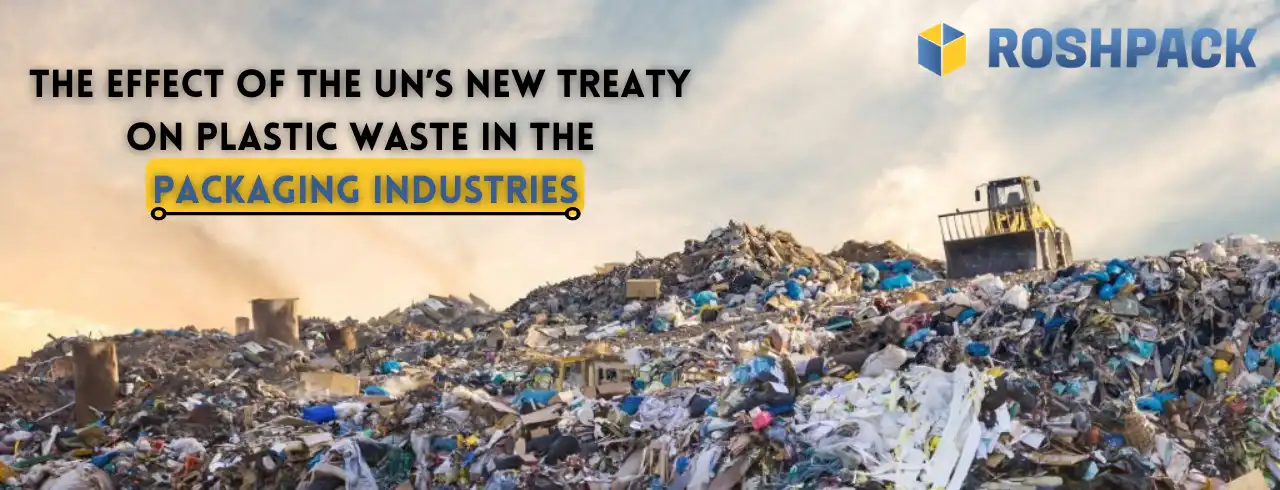-

-
Mon-Fri 9:00 to 5:30

 Mon-Fri 9:00 to 5:30
Mon-Fri 9:00 to 5:30

On March 3rd, a UN conference was held in Nairobi concerning plastic consumption. The UN’s environmental assembly conducted a meeting in which, Ministers of the environment as well as 175 nations attended. A legal contract was made regarding plastic waste in the environment. It was said that the treaty would be implemented in the second half of 2022 and would be completed by 2024. By the end of the conference 14 resolutions to this problem were discussed out of which only 2 will affect packaging industries.
‘Resolution to end plastic pollution: towards an international legalling binding instrument’ and
‘Resolution on an enhacning circular economy as a contribution to achieving sustainable consumption and production’.
The increase in plastic pollution is harmful for many reasons and one of those reasons is the harm it causes to marine life. The plastic debris lead to suffocation, ingestion and entanglement of hundreds of marine species. The aim of this treaty is to eradicate or minimize plastic usage in countries, in hopes for ‘Long term elimination’.
One resolution is for countries to lean towards sustainability. An ecological balance should be maintained in order to preserve our natural resources. The UNEA has stated that there is no single approach to tackle this issue. 70 organizations which include major brands such as Coca Cola and Nestle have supported the transition towards sustainability and cutting down on plastic usage in their companies.
France has banned plastic packaging that comes with fruits and vegetables and is taking steps towards reusable packaging. Soft drinks Europe has promised that by 2030 they will be cutting down on plastic packaging completely, and taking steps towards reusable packaging. By 2030, Coca cola will be selling 25% of their beverages in reusable containers or plant based bottles(PET) which are made using 30% of plant based materials. CEFLEX is focused on producing flexible packaging from which 17% of the packaging will be recycled.
They have also received funding from granted Uk research and innovation so that they will be able to promote and redesign flexible packaging.
The treaty which has been composed by the UN can also be seen as an advantage for packaging companies since they might get more investment and interest in the future. This treaty will put added pressure to packaging companies and will encourage them to add new policies regarding plastic usage. This added pressure is essential if a change is to be made regarding the increase of plastic pollution in various nations. While the treaty is being implied the UN expects more legislation from governments in order to restrict plastic usage. This will lead to a major shift in the usage of biodegrade bale or compostable plastic.
Another solution was chemical recycling since that might have helped in improving recycling rates but according to the World Wildlife Fund (WWF) this would have created more problems in the future. WWF argued that there was not enough research to prove chemical recycling would bring additional benefits. Until the treaty is completely finalized countries will set their own goals for managing plastic pollution while taking into account their national circumstances.
If nothing is implemented 80 million tones of plastic will be entering the ocean by 2040. The UNEA treaty will encourage plastic packaging companies to set targets and promote sustainability which will have a major impact. However, since the UN treaty will take time to be implemented it is mandatory that countries make efforts side by side to ensure there is an effective change in the environment.
-Bahisht Nadeem
